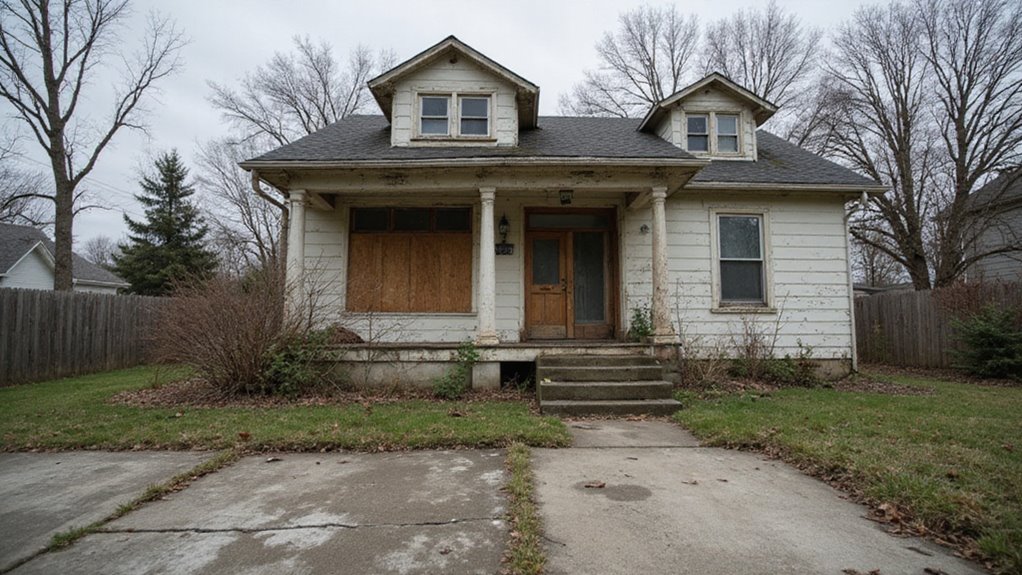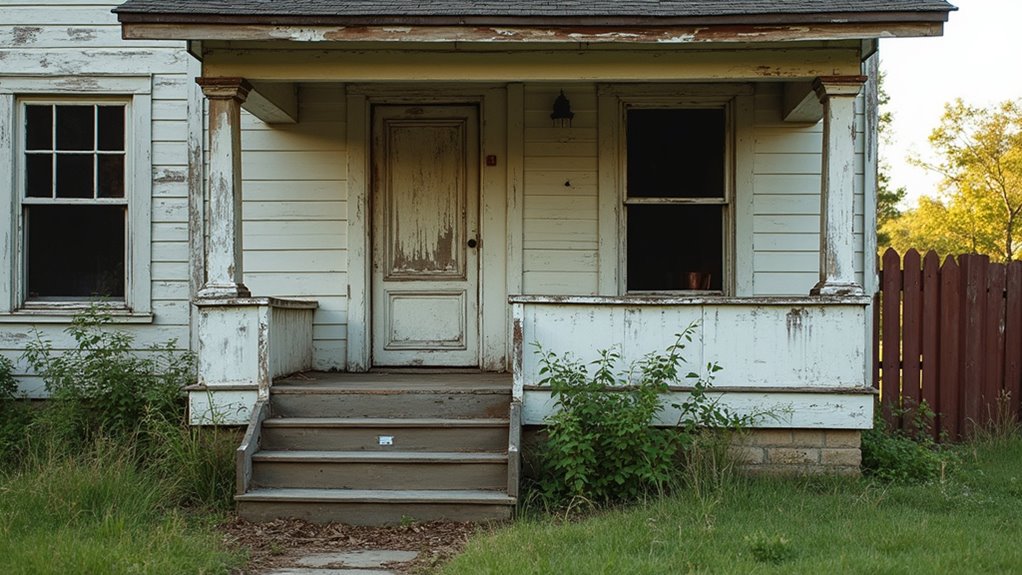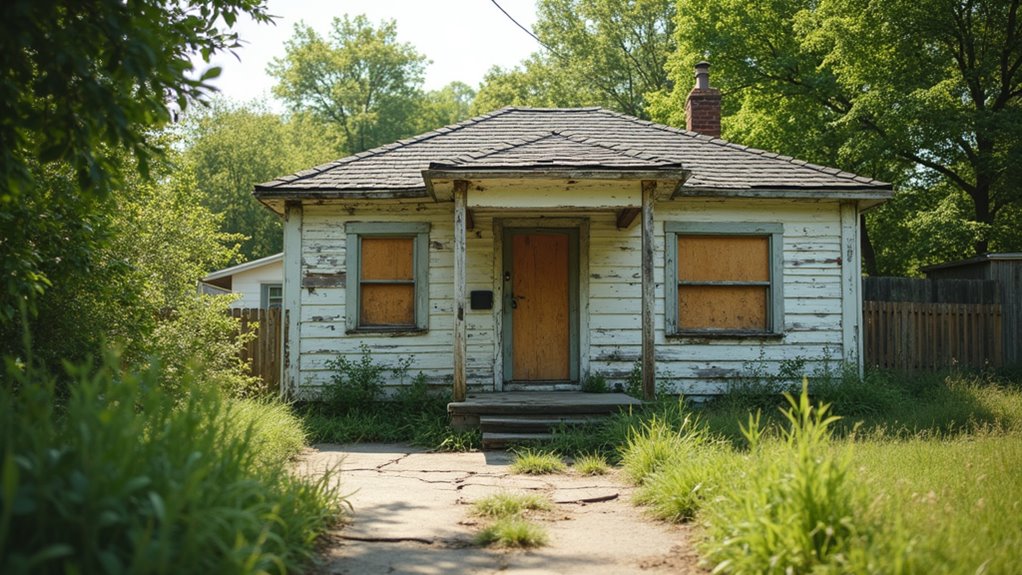Trapped in a damaged home with mounting repair bills, many homeowners feel overwhelmed and stuck. The thought of selling seems impossible when every inspection reveals more problems. Potential buyers walk away shaking their heads. Yet smart sellers can still find success through strategic pricing and targeting the right market.
Selling a house needing repairs is absolutely possible, though it comes with unique challenges. You’ll need to disclose known problems, price realistically, and consider marketing directly to investors or renovation enthusiasts. Many damaged properties sell quickly to cash buyers seeking discounted properties they can transform. In this blog I will explore everything about selling fixer-upper homes successfully.
Key Takeaways
- Houses in any condition can be sold, but must disclose known defects and repair issues.
- Selling as-is or to cash buyers offers quick options without extensive repairs.
- Proper pricing, typically 10-20% below market value, reflects repair costs and property condition.
- Focus on fixing critical safety and structural issues to meet legal requirements and attract buyers.
- Market your fixer-upper effectively to attract investors or buyers seeking renovation projects.
Can You Sell a House That Needs Repairs?
Yes, you can sell a house that needs repairs. Houses in any condition can be sold on the market. You must disclose all known defects through a property condition disclosure statement. This transparency protects both you and potential buyers from future disputes.
Homes needing significant work may attract fewer conventional buyers. However, many investors specifically look for fixer-upper properties. The selling price will reflect the property’s condition and estimated repair costs, which may lower your profit margin compared to a move-in ready home. Despite this challenge, selling “as-is” offers a straightforward path with less upfront investment.
What Are the Challenges of Selling a Damaged House?

Damaged houses typically sell for less money and take longer to sell. Property defects reduce buyer interest and limit financing options. Structural issues create the biggest obstacles, often requiring professional inspections and repair estimates. Buyers hesitate when they see foundation problems, roof damage, or major system failures. For instance, most conventional loans require properties to meet minimum condition standards, and financial institutions rarely approve mortgages for severely damaged homes.
Market value decreases significantly with visible damage. Additionally, disclosure requirements mean sellers must inform buyers about known defects. This transparency is necessary but can further complicate negotiations and closing timelines.
What Repairs Should You Fix Before Selling?

Focus on fixing critical structural issues and safety hazards, as Oklahoma law requires these to be addressed before selling.
Cosmetic upgrades with high return on investment can boost appeal but aren’t legally necessary.
Be sure to resolve code violations that could delay or block the sale, since unaddressed violations pose legal risks.
Critical Structural Issues
Foundation problems, roof leaks, and issues with load-bearing elements require immediate attention when selling property in Oklahoma City. Oklahoma real estate laws mandate disclosure of all structural defects to potential buyers. Foundation issues dramatically reduce buyer interest and often lead to failed inspections. Roof problems directly affect property valuation and can cause deal-breaking concerns.
Building codes specifically require all load-bearing elements to meet safety standards before sale. Structural damage often delays closing and may necessitate price reductions. In most cases, addressing these critical repairs early saves money and streamlines the selling process.
Safety Concerns
Safety hazards must be fixed before selling your home. Disclosure of all known issues is legally required, especially foundation problems and code violations. You need to address dangerous conditions like electrical problems, water damage, or mold growth. Fixing these issues prevents potential lawsuits and helps secure a successful transaction.
Buyers appreciate homes without safety concerns. Your proactive approach builds trust and demonstrates responsibility. Most states have specific disclosure laws that protect buyers from undisclosed hazards. The investment in repairs typically pays off through faster sales and fewer negotiations.
Cosmetic Improvements with High ROI
Certain cosmetic upgrades deliver excellent return on investment when selling your home. Fresh paint offers significant impact for $200–$500, instantly refreshing your property’s appearance. Landscaping costs $300–$1,000 but dramatically enhances curb appeal for potential buyers. New hardware updates dated fixtures for only $50–$200 per item, while minor damage repairs ranging from $100–$400 prevent buyer concerns about maintenance issues.
However, these improvements should always follow any necessary safety repairs. When done strategically, these targeted investments typically return 80–100% of their cost in increased home value while also shortening time on market.
Code Violations
You must fix code violations before selling your home. Local laws require repairs to ensure safety and legal compliance. Unpermitted work and structural damage are top priorities that affect habitability. Most municipalities require all code violations to be addressed before property transfers can be completed.
Unaddressed issues will appear on your disclosure statement. As a result, buyers may lose interest or demand steep discounts. Furthermore, selling a home with known violations creates potential legal liability.
What Are Your Options for Selling a House As-Is?
Y
You can sell a house as-is through five main methods. Cash home buyers provide quick sales without repair needs. Real estate agents can list properties as-is on the open market. Wholesaling offers a rapid transaction with minimal work required. FSBO (For Sale By Owner) gives you complete control over the selling process. Fixer-upper marketing targets buyers seeking renovation projects. Each approach balances speed, profit, and effort differently.
Cash buyers typically offer 50–70% of market value but can close within 7–14 days. The traditional market might bring higher offers but usually takes longer. Ultimately, your financial situation and timeline should guide which method is best for you.
How to Disclose Property Issues When Selling?
Sellers must disclose all known property issues to potential buyers. Oklahoma law requires disclosure of foundation damage, mold, electrical problems, and safety hazards.
Complete a seller’s disclosure form listing all defects and their history. This protects you from future lawsuits and builds trust with buyers.
The disclosure should include repair history, recurring problems, and current issues. Be thorough yet concise when describing each problem. Moreover, provide documentation of previous repairs when available.
Failure to disclose known defects can result in legal liability even after closing. In the long run, honesty creates smoother transactions and fewer complications.
What Are the Benefits of Selling to Cash Buyers?
Cash buyers offer faster closings with minimal contingencies. You can sell properties with foundation problems without expensive repairs.
Most cash transactions close in 7-14 days rather than the typical 30-45 days with traditional buyers. These buyers usually waive inspections and appraisals, simplifying the process.
Furthermore, cash sales reduce legal complications and eliminate financing uncertainties. You won’t face last-minute loan denials or appraisal issues.
As a result, the transaction involves fewer parties and less paperwork.
In addition, you save money on agent commissions, staging costs, and holding expenses. This approach works especially well for inherited properties or during urgent relocations.
How to Price a House That Needs Work?
Price a house needing repairs at 10–20% below market value after subtracting repair costs. Start by researching comparable fixer-uppers in your area to establish a baseline price. Deduct the total estimated repair costs from this baseline value, then add a discount to attract buyers looking for projects. Professional inspections help identify all issues that affect pricing. Structural problems and outdated systems typically require larger discounts, while cosmetic issues may warrant smaller reductions.
Remember that investors seek deals with profit potential. A properly priced fixer-upper will generate more interest and potentially sell faster. However, pricing too low means leaving money on the table.
Ready to Sell Your Fixer-Upper? Contact Shawn Buys Houses Today!
Shawn Buys Houses will purchase your fixer-upper fast and with no hassle. We specialize in buying properties that need significant repairs or have structural issues, so you won’t need to fix foundation problems, plumbing issues, or other damage before selling. Our service also eliminates the need for traditional home warranties.
We purchase properties in any condition across all price ranges. The process is straightforward and designed for homeowners who need to move quickly. Many sellers appreciate avoiding contractor negotiations and repair costs. Instead, you can receive cash for your property as-is and move forward with your plans.
Frequently Asked Questions
Do I Need to Disclose All Known Defects When Selling My Fixer-Upper in Oklahoma?
You must disclose all known defects, like foundation or safety hazards, to buyers. Envision handing over a map of the house’s issues, ensuring transparency, legal compliance, and helping buyers make informed decisions, ultimately building trust and avoiding future disputes.
Can I Sell a House With Unresolved Code Violations Legally in Oklahoma City?
Yes, you can sell a house with unresolved code violations in Oklahoma City, but you must disclose all known violations, including safety and habitability issues. Buyers may negotiate discounts or require violations addressed before closing.
Are There Specific Legal Requirements for Selling a House “As-Is” in Oklahoma?
Like traversing treacherous waters, you must disclose all known defects when selling “as-is” in Oklahoma. Legally, provide written disclosures, address safety violations, and follow city codes, ensuring transparency to protect buyers and uphold your integrity.
How Does Selling to a Cash Buyer Affect My Disclosure Obligations?
Selling to a cash buyer doesn’t eliminate your disclosure obligations. You still must reveal all known material defects, hazards, and code violations to serve the buyer’s best interest and comply with Oklahoma law, ensuring transparency and legal compliance.
What Are the Legal Consequences of Failing to Disclose Property Issues in Oklahoma?
If you fail to disclose known issues, you risk legal action, fines, and powerful rescission of the sale. Honesty builds trust, protects your reputation, and ensures compliance with Oklahoma laws, ultimately serving your buyers’ best interests.

